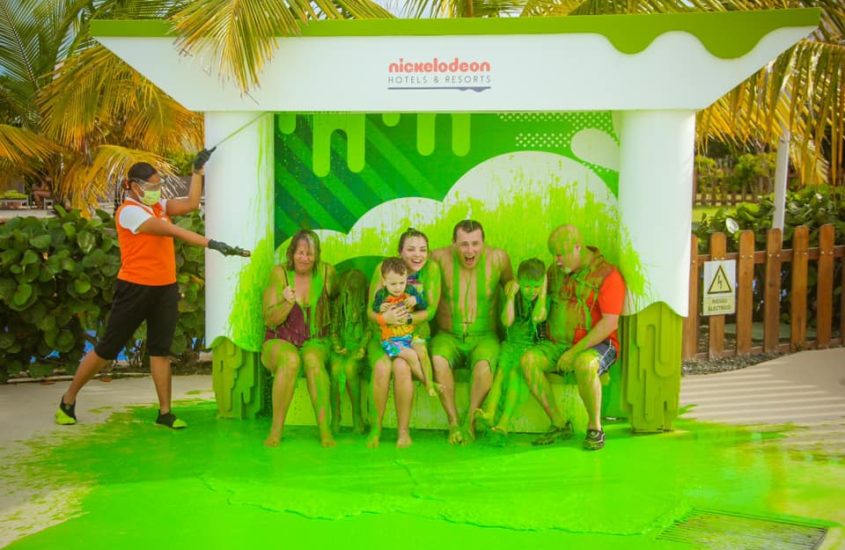I think my child has Autism

I’ve decided that for my next couple of entries I am going to take a bit of a step back in time. I often find myself hitting on our current struggles, successes, and our general day-to-days since it is so fresh in my mind. But I know many of the people out there looking for help and answers are likely just starting their journey as a parent of a child with (or potentially with) Autism. So, today I want to talk about beginning, from the time I first thought my son may be autistic until he was formally diagnosed.
The Signs
You may have heard the saying before, “If you’ve met one person with autism, you’ve met one person with autism.” No two autistic people are the same and the truth is the signs can vary quite a bit, especially depending on when you start to see the onset. Some people can notice as early as when their children are babies, many more start to see signs around the toddler stage, and then there are some that are not diagnosed until later in childhood or even until adulthood. If you’re looking for an exhaustive list at each stage, this is a great site. The signs may be subtle things. They may be really big and noticeable things. Some things you may be familiar with such as delayed speech, lack of eye contact, or lack of interest in other children. Other’s you may not have been familiar with. I myself, someone who has been around autism my whole life having an older brother on the spectrum, did not know that one of the big signs could be a regression or loss of developed skills, which was a big indicator for our son.
For us personally, we didn’t see anything until Damion was around 13 months old when he started losing some of his speech. Until then, he had hit every milestone with ease. By about 15 months the regression in some of his previously acquired skills was not only noticeable but measurable. As we reached birthday number two with a child that used to say quite a few words and was now essentially nonverbal, would jump and flap his hands often, had tantrums that continued to get harder to manage, and his interest in playing with other kids was very limited; we knew we had to seek out help.
The Help
I’ve touched a bit on this area before in my previous blogs The 5 Stages of Diagnosis and The Start to My Journey as a Mom, but even knowing in the back of my mind that my son was likely on the spectrum, the bit of yourself that doesn’t want it to be real can be overpowering at times. You’ll run into people that will say, “they are just so young”. They will give you their own personal stories of how their kids were non-verbal till they were 3 and now they are fine. You may cling to this idea. It’s hard not to, but let me just say that getting help will never hurt those that don’t need it later, but not getting help can make a big impact to those that do.
Your first points of contact, will likely depend on your child’s age. If your child is baby through toddler years, I would suggest reaching out to your local county board of developmental disabilities. Most have programs such as help me grow or something similar that will come out to your home and do free assessments which will help tell you if your child needs further assistance. You may be able to talk to your pediatrician, but honestly, they will likely just point you to county services as well. The county, in general, is really great with everything you will need in this area. Now living in the times of Covid, things may be different based on where you live. If you find that the county services are backed up, or very limited right now, then definitely move on to your pediatrician. If your child is a bit older, I would suggest collaborating with their teachers and pediatrician to see what kind of supports can be put in place (if needed) and to discuss whether they think seeking a diagnosis would be beneficial.
The Path to Diagnosis
The path to diagnosis can be fairly simple, or alternatively very long and drawn out. If your child’s autism is in the severe to moderate range than getting a diagnosis will probably come fairly easily. For us, Damion is in the moderate range, so with assistance from our county rep, after only one visit at our local children’s hospital, we had a formal diagnosis of autism spectrum disorder. Our youngest son Drew on the other hand, who has a few autistic tendencies and also some difficulty with speech, has been to appointments at 6-month intervals for going on two years now as the findings are not definitive enough to give him a diagnosis. The diagnosis is not the end all be all to being able to get services, so even in the mean time work on those areas that you know that need help in.
Is seeking a diagnosis necessary? That really depends. If you are getting your child all the early intervention services that they need already, then a diagnosis will likely not change much. But a diagnosis does more than just check a box that your child has autism. Getting a formal diagnosis can really be a door opener for many families. It can help you access certain services, provide a requirement for schooling to accommodate your child’s needs with an IEP, and can be useful monetarily for insurance coverage and access to certain county funds and scholarships. The access to some of these things may still be attainable without a diagnosis, but it just comes that much easier with one.
Realizing that your child may be autistic can be overwhelming as a parent. Believe me, I know. Every year it seems that the rates of autism go up, which is concerning, but my glass half-full approach says that with that, if they are on the spectrum, you now have more ways than ever to help them. Stepping up and getting them the help they need now, can make a world of difference in the long run. I can assure you that getting a diagnosis is obviously far from the end of this journey for you and your child, but it is a very important beginning step. Don’t put it off. If you think your child may be autistic, do what you can to get them the services they need, and just know that you are far from alone in this journey.
Getting help will never hurt those that don’t need it later, but not getting help can make a big impact to those that do…





Steyer Brenda
Thanks for the information